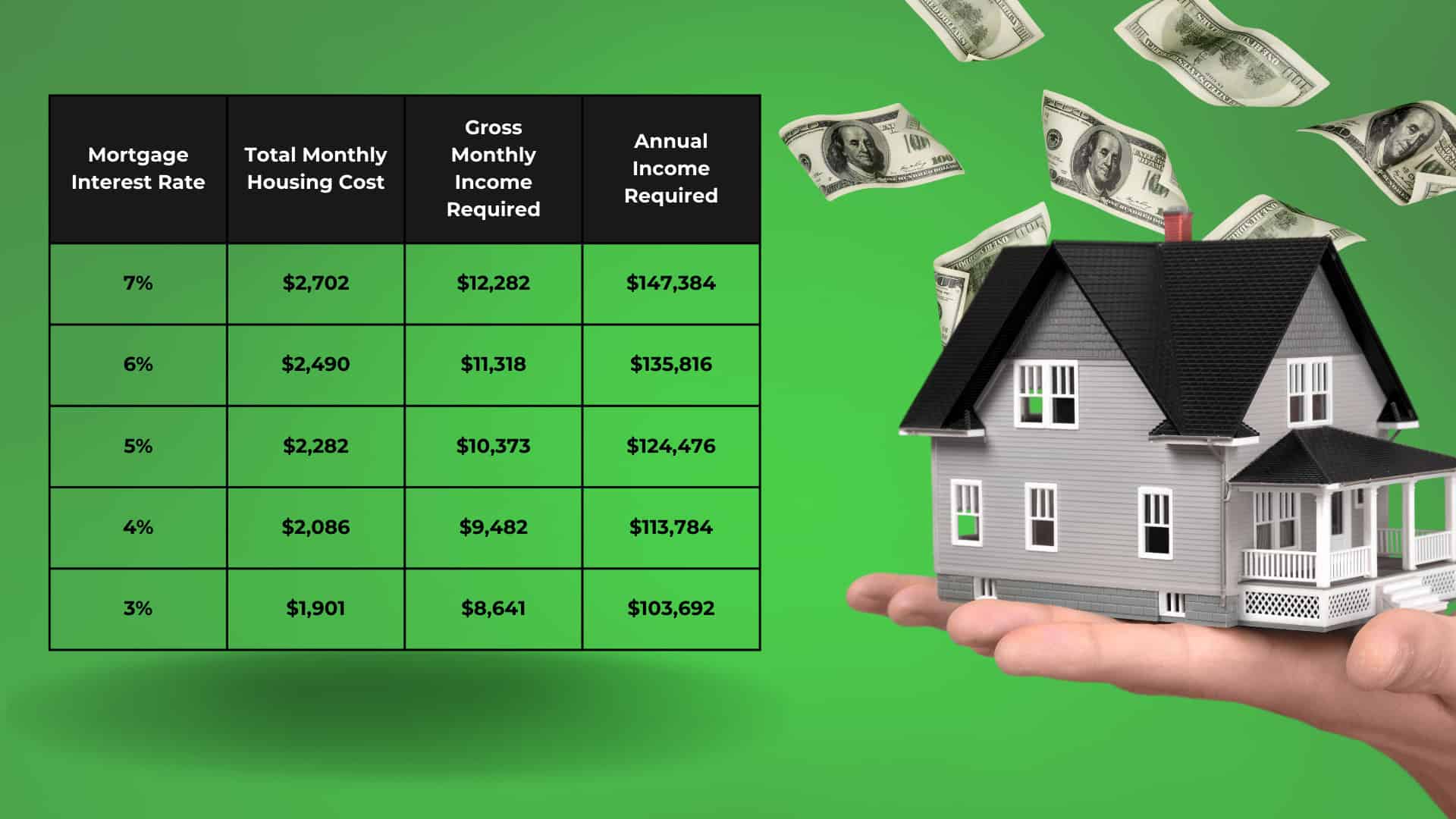Personal Finance
The Income You Need to Comfortably Afford the Median-Priced Home in America

Published:

According to recent data from the Federal Reserve Bank of St. Louis, the median sales price of houses sold in the United States has reached $412,000. The significant rise in prices over the past few years marks a historic level in the nation’s housing market, driven by factors such as persistent low inventory, increased demand, and shifting economic conditions post-pandemic.
While the rate of increase has started to slow over the past year or so, the escalated prices are reshaping the landscape of homeownership, presenting challenges for first-time buyers and influencing housing policies nationwide (such as Kamala Harris’s proposal to help first-time homebuyers).
So, if you happen to be one of these prospective homebuyers, let’s take a look at the numbers to actually understand what is might take to buy a house in today’s market, without overextending your total budget.
When considering purchasing a home, it’s important to assess how much of your income will be dedicated to housing expenses. Many personal finance experts and financial advisors suggest spending no more than 28% of your gross monthly income on housing costs—including mortgage payments, property taxes, and insurance.
This helps ensure you have enough remaining funds for other obligations like debt repayments, savings, and discretionary spending. However, we have found that even at 28%, people tend to underestimate the costs that can unexpectedly arise when it come to owning a house (leaky roof, anyone?). Therefore, here at 24/7 Wall St., we like to suggest a more conservative cap of 22% for housing expenses.
By keeping your housing costs at or below this lower threshold, you create a larger financial cushion to handle unexpected expenses, invest more in savings or retirement accounts, and avoid the pitfalls of becoming “house poor.” Tying up too much of your budget in your home can leave you financially vulnerable, with limited flexibility to manage emergencies or seize other opportunities (what if you get a new, dream job that requires a pay cut?).
Therefore, maintaining a modest portion of your income for housing not only safeguards your financial health but also enhances your overall quality of life.
Now that we understand the logic behind the 22% threshold. Let’s run the numbers.
A prospective buyer needs earn approximately $135,000 annually to comfortably afford a $412,000 home with a 20% down payment, assuming a 6% interest rate on a 30-year mortgage.
Here’s how the numbers break down…
After a 20% down payment of $82,400, the loan amount becomes $329,600. With a 30-year fixed-rate mortgage at 6% interest, the monthly mortgage payment would be around $1,977. Adding estimated monthly property taxes of about $412 (based on a 1.2% annual property tax rate) and homeowner’s insurance of approximately $100, the total monthly housing cost comes to roughly $2,489.
To keep this within 22% of your gross monthly income, you’d need to earn about $11,313 per month.
While $135,000 might seem disheartening to some, there are other factors at play. If home prices stabilize and interest rates go down, you can see in the table below that it can significantly change the calculation.

Despite the challenges in today’s housing market, there is hope for aspiring homeowners.
By collaborating with a knowledgeable real estate agent and a trusted financial advisor, you can navigate the complexities of buying a home more effectively. These professionals can help you explore various financing options, identify properties that fit your budget, and develop a personalized plan to achieve your homeownership goals. With the right guidance and support, turning the dream of owning a home into reality is within your reach.
Are you ready for retirement? Planning for retirement can be overwhelming, that’s why it could be a good idea to speak to a fiduciary financial advisor about your goals today.
Start by taking this retirement quiz right here from SmartAsset that will match you with up to 3 financial advisors that serve your area and beyond in 5 minutes. Smart Asset is now matching over 50,000 people a month.
Click here now to get started.
Thank you for reading! Have some feedback for us?
Contact the 24/7 Wall St. editorial team.